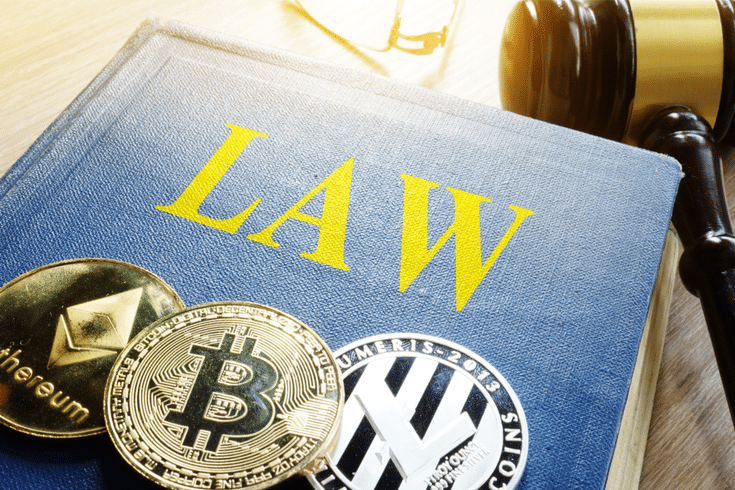Legal Regulations for Crypto Assets in Japan

Today crypto assets have become widely popular in business management, and there have been instances where commercials and ads dealing with crypto assets are frequently on the TV.
However, the legal regulations for crypto assets heavily vary depending on their nature, making it hard to comprehend the intricate legal regulations and respond accordingly.
Hence, in this article, we will explain the laws and regulations for businesses that handle crypto assets.
Understanding Crypto Assets (Virtual Currencies)
A crypto asset is a property value that can be exchanged with an unspecified number of people through the Internet. It used to be called “virtual currency”, but the legal name was changed to “crypto assets” in light of international trends.
There is a variety of crypto currencies including Bitcoin and Ethereum, which are among the most popular.
Crypto assets can be divided into two main types: bitcoin-type and ICO token-type.
Bitcoin Type
The Bitcoin Type is characterized by the fact that there is no issuer; therefore, it is difficult to assume an intrinsic value of its own.
ICO Token Types
Initial Coin Offering (ICO) is the process by which a company electronically issues tokens (certificates) to raise legal tender or crypto assets from the public.
Unlike the Bitcoin type, this ICO token type has an issuer. Therefore, the value depends on the issued rights.
In addition, ICO tokens can be further classified into the following three types:
- investment types
- other right-of-use types
- no rights type
Investment type refers to cases where crypto assets are acquired with the expectation of economic value equivalent to cash, such as distribution of business profits.
Other right-of-use types refer to cases where cryptographic assets are acquired from the issuer of them in exchange for the provision of goods, services, etc.
No rights type refers to cases where crypto assets are acquired without seeking remuneration from the issuer of the crypto assets.
Regulations for Crypto Assets in Japan

There are two significant laws that govern crypto assets in Japan: the Payment Services Act (referred to as the “Payment Act”) and the Financial Instruments and Exchange Act (referred to as the “FIEA”).
The Payment Services Act regulates crypto currency as a means of payment. Conversely, the FIEA regulates crypto currency as financial assets, such as investment targets, and as a means of raising funds through Initial Coin Offerings (ICO).
In the following sections, we will explain the relationship between crypto currency, the Payment Services Act, and the Financial Instruments and Exchange Act in detail.
The Crypto Asset and Fund Settlement Act
The Payment Services Act covers crypto assets that lack a Bitcoin-like issuer, as well as other types of crypto assets that involve the right to use or do not involve any rights. In the following paragraphs, we will discuss how cryptoassets are related to the Payment Services Act.
Definition of Crypto Assets under the Payment Services Act
Regarding crypto assets, Article 2, Paragraph 5 of the Payment Services Act stipulates that they have the following properties.
- Can be used as a means of payment to an unspecified person, and can be exchanged for legal currencies (Japanese yen, US dollar, etc.)
- Are electronically recorded and transferable
- Not a form of legal currency or assets denominated in legal currency (prepaid cards, etc.)
- Must not display the “right to transfer electronic records” as stipulated in Article 2, Paragraph 3 of the FIEA.
Definition of Crypt Asset Exchange Businesses under the Payment Services Act
The Payment Services Act sets out regulations for providers of crypto currency exchange services. The definition of the crypto currency exchange business is provided in Article 2, Paragraph 7 of the Payment Services Act:
The term “crypto-asset exchange services” as used in this Act means carrying out any of the following acts in the course of trade. The term, “exchange of crypto-assets, etc.” as used in this Act means the acts set forth in items (i) and (ii), and the term “management of crypto-assets” as used in this Act means the act set forth in item (iv):
(i)the purchase and sale of a crypto-asset or exchange with another crypto-asset;
(ii)the utilization of intermediary, brokerage or agency services for the act set forth in the preceding item;
(iii)the management of users’ money, carried out by persons in connection with their acts set forth in the preceding two items; and
(iv)the management of crypto-assets on behalf of another person (excluding cases where the relevant management in the course of trade is governed by special provisions of other Acts).
Article 2, Paragraph 7 of the Payment Services Act
Under the Payment Services Act, any businesses who undertake any of the aforementioned activities might be the subject to regulatory oversight as crypto currency exchange businesses.
Regulations on Crypto Asset Exchange Businesses under the Payment Services Act
Registration as a crypto asset exchanger is required to engage in the crypto asset exchange business. (Article 63-2 of the Payment Services Act).
In addition, the Fund Settlement Act imposes the following regulations on the execution of operations of crypto asset exchange service providers.
- Secure management of information pertaining to the crypto asset exchange business (Article 63-8)
- Guidance regarding consignors of the crypto asset exchange business (Article 63-9)
- Regulation crypto asset exchange business advertisements(Article 63-9-2)
- Establishment of prohibited acts (Article 63-9-3)
- Protection Measures for Users of Crypto Asset Exchange Services (Article 63-10)
- Management of assets of the crypto-asset exchange service (Article 63-11)
- Management of Performance Guarantee Crypto Assets (Article 63-11-2)
- Obligation to conclude a contract with a designated crypto-asset exchange service dispute resolution organization (Article 63-11)
- Preparation of books and documents related to crypto asset exchange business (Article 63-13)
- Submission of annual reports (Article 63-14)
When conducting a crypto asset exchange business, it is necessary to comply with the above regulations of the Payment Services Act.
Regulation of Crypto Asset under the Financial Instruments and Exchange Act

Crypto Assets of an investment nature are subject to investment regulations under the Financial Instruments and Exchange Law. Below is an explanation of the relationship between crypto assets and the FIEA.
Definition of Crypto Currency under the Financial Instruments and Exchange Act
The FIEA defines crypto currency in accordance with the Payment Services Act (Article 2, Paragraph 24, Item 3-2 of the FIEA).
Relationship with Collective Investment Scheme Equity
First, as stipulated in Article 2, Paragraph 2, Item 5 of the FIEA, in principle, if the following requirements are met, it will be judged as a collective investment interest.
- Investment or contribution of money, etc. by a person with rights
- The investment target business is operated using the contributed money, etc.
- The right-holder has the right to receive a dividend of profits generated from the invested business or a distribution of property related to the invested business
In the past, crypto assets were treated as neither money nor money analogues, so they did not fall under the category of “money, etc.” in collective investment scheme equities. However, following the FIEA’s revision in 2019, crypto assets are now considered money.
Therefore, when an investor invests in crypto currency, it falls under the category of “a person who has the right to invest or contribute money, etc.” Then, fund operators who adopt a mechanism to have investors invest in crypto assets will be regulated by the FIEA.
As a result, unlike in the past when crypto currency were not regarded as money, in principle fund operators are required to register as a Type II Financial Instruments Business (Article 28, Paragraph 2, Item 1, Article 2, Paragraph 8, Item 7) and be subject to the regulations in accordance.
Electronic Records Transfer Rights
New articles of incorporation, including the “right to transfer electronic records” were established in Article 2, Paragraph 3 of the FIEA which details the following.
(3)The term “public offering of securities” as used in this Act refers to a solicitation of subscriptions for acquisition of newly issued securities, where such solicitation of acquisition pertains to the securities listed in paragraph (1) or to the rights which represent securities deemed to be securities pursuant to the provisions of the preceding paragraph, specified electronically recorded monetary claims or rights listed in the items of the same paragraph (4) The term “private placement of securities” shall mean a solicitation of acquisition that does not fall under the category of offering of securities.
Article 2, Paragraph 3 of the FIEAい
“Electronic Record Transfer Rights” refer to property values that can be transferred through an electronic information processing system.
Although electronically recorded transfer rights are originally classified as deemed securities under Article 2.2 of the FIEA, the disclosure regulations under Article 2 of the FIEA apply to them due to their high tradability through blockchain technology, etc. The shares will be treated as securities under Article 2, Paragraph 1.
If the equity from the aforementioned collective investment scheme is converted into crypto assets, it is generally considered to fall under electronic record transfer rights.
Regulations on Electronic Records Transfer Rights
If the transfer of electronic records is categorized as Section 1 securities, disclosing regulations will apply when dealing with the offering of shares in collective investment schemes converted into crypto assets, or when conducting private placements as a Type I Financial Instruments Business (Article 28, Paragraph 1, Item 1, Article 2, Item 8, Item 9 of the FIEA).
Consequently, it is mandatory to prepare and release a securities registration statement (Article 4, Paragraph 1 of the FIEA) and a prospectus (Article 13, Paragraph 1 of the FIEA and Article 15, Paragraph 1 of the FIEA) in parallel.
However, public inspection-type disclosure regulations are not applicable when dealing solely with qualified institutional investors, professional investors, or fewer than 50 individuals, or if it qualifies as a private placement.
Consultation with a Lawyer on Regulations for Crypto Assets
We have previously provided information on laws and regulations for businesses dealing with crypto-assets, with a focus on such businesses. It is worth noting that the regulations concerning crypto-assets are intricate and may vary depending on the nature of the business handling them. We suggest seeking advice from a legal expert with specialized knowledge in regulating crypto assets.
Legal Guidance from Our Office
Monolith Law Office is a highly specialized law firm with expertise in both IT, particularly the Internet, and law. Our services include comprehensive support for businesses engaged in crypto assets and blockchains, such as researching the legality of foreign schemes in Japan, developing policy documents and contracts, and analyzing foreign policy documents.
Category: IT





















